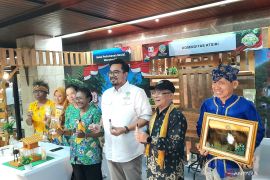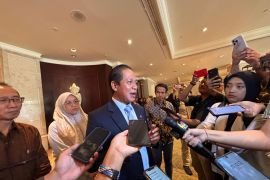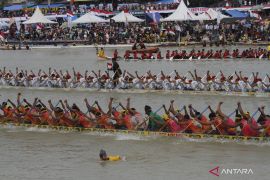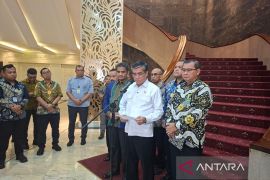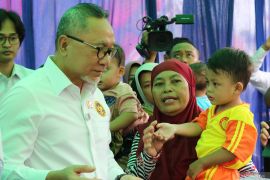"We are working on regional cooperation based on a premise that if there is a regional action plan, then other countries will refer to it to make their own plans at the national level," Jose Tavares, Foreign Ministrys director general for ASEAN affairs, noted while delivering an opening speech at the "East Asia Summit Conference on Marine Plastic Debris" in Bali on Wednesday.
During the conference, the Indonesian delegation presented some measures taken to reduce plastic waste at sea based on Presidential Regulation No. 16 of 2017 on Indonesian Marine Policy.
The country has also formulated an action plan to reduce 70 percent of its marine plastic waste by 2025 and a plastic reduction campaign both for the industry and community.
The paid plastic policy that had earlier been applied in 2016 is currently stalled, pending further discussion and negotiations among stakeholders, including the plan to impose excise on plastic products before they enter the market.
A scientific report from the Georgia University estimates that 4.8-12.7 million metric tons of plastic contaminate the oceans. Some 80 percent of the marine plastic waste comes from the mainland due to less-effective waste management and the peoples habit of littering.
For a maritime country, such as Indonesia, the condition can have a major impact on tourism and economic activities, as it has the potential to reduce state revenues.
"Hence, we do hope this conference would bring out shared views on how we can better cooperate to overcome the problem of marine plastic waste that disrupts health, ecosystem, and tourism," Tavares noted.
The "East Asia Summit Conference on Marine Plastic Debris" is organized by Indonesias Foreign Ministry and the Coordinating Ministry of Maritime Affairs in collaboration with the Government of New Zealand.
New Zealands Ministry of Foreign Affairs and Trade Divisional Director of South and Southeast Asia Stephen Harris said his country is eager to tackle plastic pollution at sea that has become a global challenge in the 21st century.
"We are so happy to cooperate with Indonesia and other participating countries at this conference to together find a collective solution to the problem of plastic waste," he noted.
Attended by 85 delegations of government representatives, non-governmental organizations, and academics from 10 member countries of the Association of Southeast Asian Nations, Japan, South Korea, China, and the US, the two-day conference also highlights innovative solutions, local and national policies, as well as private and public partnerships to educate the people to reduce marine plastic waste.(*)
Editor: Heru Purwanto
Copyright © ANTARA 2017


